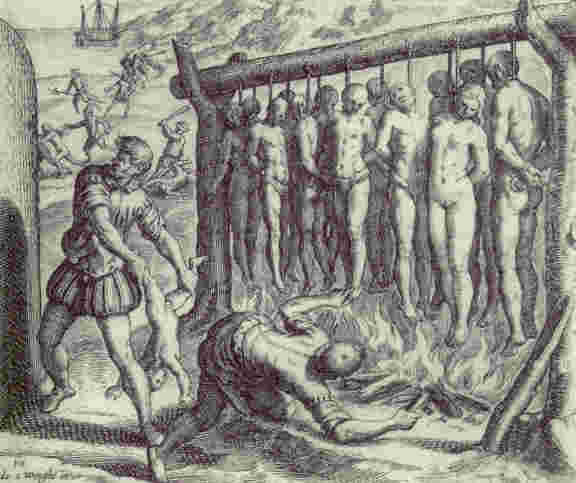Legal analysis on Counterpunch
When I presented this issue, my students at Riverside Community College were usually of the opinion that professors shouldn't "voice an opinion" in classroom discussion, but instead be "neutral" on all topics. I occasionally challenged this opinion in class, since, after all, the notion of "neutrality" or "balance" relies upon a completely mistaken notion of ethical reporting.
Imagine, for instance, a home invasion robbery. The robbers break into the home, murder the father, rape the mother, and steal thousands of dollars of stuff while kidnaping the children. So we're the "neutral" and "balanced" teachers/ reporters covering this event -- let's get a "balanced" report on this robbery. Whose sides are we going to portray. The mother, certainly. The children, to be sure, although they probably won't be available, having been kidnaped. They might be brainwashed by the robbers, too, so their perspective might not be worth much. But wait! We aren't being "neutral"! We should allow the robbers to spew their lies and venom, as if their opinion were equal to everyone else's.
Now isn't that pleasant! But, lest the reader imagine that I am being hyperbolic, let's look at the historical record. Uh-oh! There are several historical records! One of them, the one typically given in American history books, is given by the victors, the home invasion robbers of history. We can see how this works by examining, first of all, the matter of the Indian Wars. In this perspective, either the native Americans didn't matter much, or they weren't even there. Their genocide surely wasn't important. American history, for them, is the history of the rich while males who ran the United States of America.
There are of course many many other perspectives on history; these perspectives barely make it into the "alternative press" of the society. You have history from the underclass side (Zinn's A People's History), you have history from a black viewpoint (Alex Haley's Roots), you have history from a native American viewpoint (James Wilson's The Earth Shall Weep), etc., or rather you have history from those stepping in as proxies to assume the viewpoint of the oppressed peoples throughout history. The oppressed usually don't write history; they were illiterate, or their writings were confiscated and burned. All we have of classical history is the history written from the perspective of the social class that was gifted with literacy, paper, and writing implements.
So we don't, for instance, have the Taino viewpoint on Columbus' conquests -- we have Columbus, and we have Bartolome de las Casas. Oh, and of course we have Theodore de Bry's illustrations to de las Casas' works:

But these folks don't really see history from the Taino perspective. They're the folks dangling from the cords up there. That's lost. The stuff in the picture above probably happened; but it's all intermixed with perspective, ideology, what have you.
De las Casas, for his part, wanted to convert the heathens to Christianity, like all of the early Spanish colonial priests who discovered the New World for themselves. Do we hold his perspective anymore? No. His privilege was to be there to describe what you see in the picture, not to think "impartially." So no wonder there's lots of opinion in history. The folks who don't want history to reflect opinions, then, need to get over it.
Back to my argument. Objectivity, neutrality, impartiality, all are nonsense. What's left? Finding out what you believe. Discovering your own wisdom, for yourself. Teachers/ professors need to get students to engage this process. The whole "professors are indoctrinating students" crap you hear from David Horowitz and the like is a complete distortion of where students pick up ideology. Everything in our society is a piece of the puzzle we put together to construct an ideology. The things that count the most in our construction of ideology are the forces that control our lives. Professors indoctrinate students? The whole classroom situation, with students taking courses for grades, credit, degrees, careers etc., is set up to give professors control over the classroom, and to make them irrelevant outside of it. Professors give students a grade for work done in class; the students believe one thing in class to get a good grade, and something else in their own, "real," lives.
Good professors struggle against this system to be heard -- professors are generally not threatened by forces directing them to be ideological conformists so much as with irrelevance to the world at large. They therefore attempt to empower students to become wise, self-directed people. People like David Horowitz and the Cherry Creek School District are simply trying to impede that attempt by going on witch-hunts.
